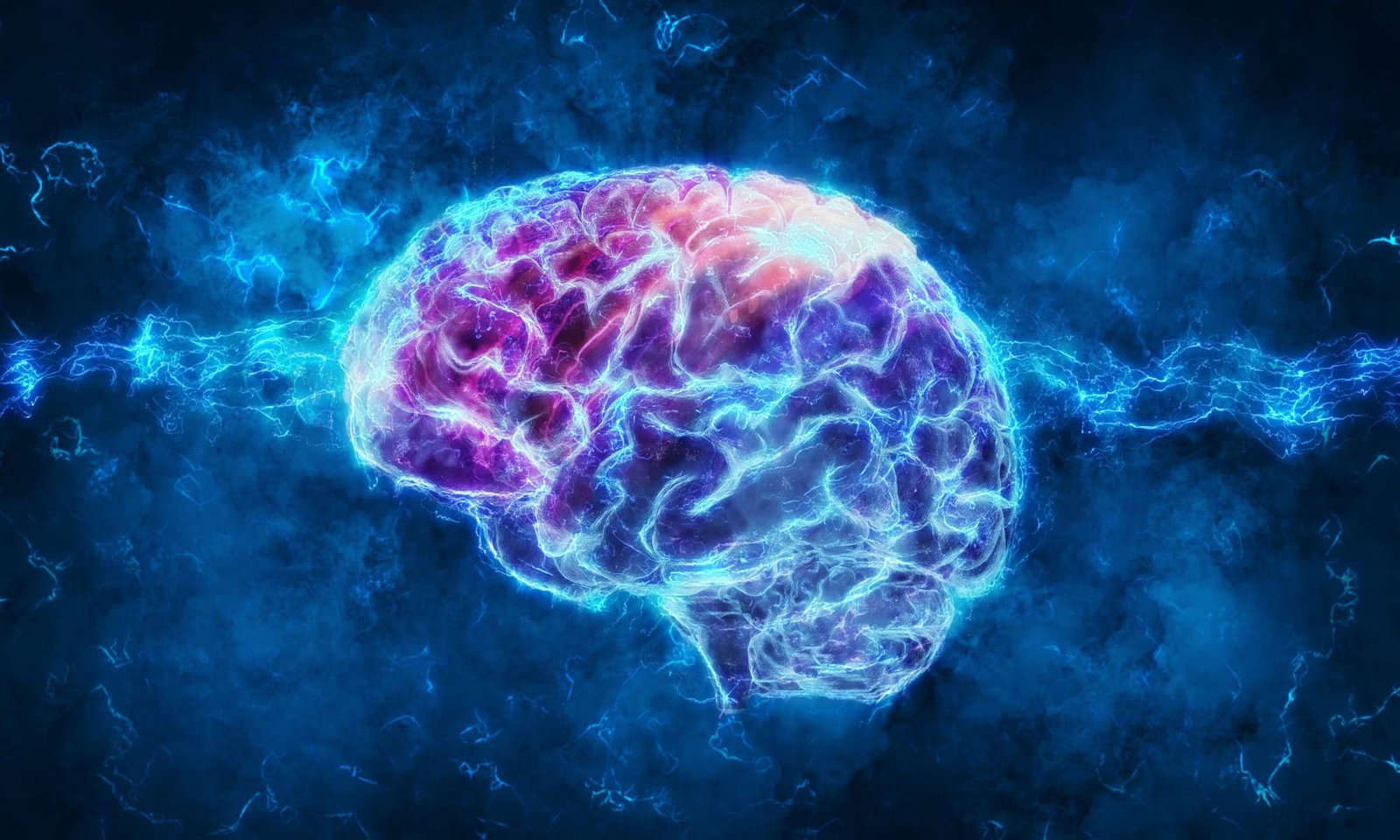Anatomy of the Human Brain
The human brain is a highly complex organ, divided into three main anatomical regions: the forebrain, midbrain, and hindbrain. Each region serves distinct functions vital to both cognitive and motor processing. Understanding the structure of the brain aids in comprehending how it governs behavior, emotions, and various bodily functions.
- The forebrain, which is the largest part of the brain, comprises the cerebrum and several other critical structures. The cerebrum is responsible for higher brain functions, including reasoning, problem-solving, planning, and emotional responses. It is further divided into four lobes: the frontal, parietal, temporal, and occipital lobes. Each lobe plays a unique role; for example, the frontal lobe governs executive functions and decision-making, while the occipital lobe is primarily responsible for visual processing.
- The midbrain, located beneath the forebrain, acts as a crucial pathway for information relayed between the various parts of the brain. It is involved in several functions, including vision, hearing, and motor control. Structures within the midbrain also play a role in regulating alertness and response to stimuli.
- The hindbrain includes the cerebellum and the brainstem. The cerebellum is primarily associated with the coordination of voluntary movements and balance, allowing for smooth and accurate motor functioning. The brainstem, consisting of the medulla oblongata, pons, and midbrain, controls essential autonomic functions, such as heart rate, breathing, and alertness, serving as a communication hub for signals traveling between the brain and the body.
In summary, the anatomy of the human brain is intricate, containing specialized regions that work in concert to facilitate a range of cognitive, sensory, and motor functions, highlighting the organ’s vital role in human existence.
How the Human Brain Works
The human brain is an intricate organ responsible for governing a vast array of functions necessary for survival, cognition, and emotion. At the core of its functionality are neurons, specialized cells that transmit signals throughout the nervous system. These neurons communicate through synapses, where neurotransmitters – chemical messengers – are released. This communication network allows the brain to perform tasks ranging from basic reflexes to complex thought processes such as reasoning and abstract thinking.
Neurons are the workhorses of the brain, with approximately 86 billion of them forming intricate connections. Each neuron can connect with thousands of other neurons, creating a vast web of communication pathways. The electrical impulses generated by a neuron travel down its axon, prompting the release of neurotransmitters at the synapse. These neurotransmitters then bind to receptors on adjacent neurons, transmitting signals that can either excite or inhibit further communication. This delicate balance of signals is crucial for brain activities such as thinking, learning, and memory.
Information processing in the brain occurs through various neural pathways and is not localized to a single area. Different types of brain activities can be measured using various techniques, including electroencephalography (EEG), which records electrical activity, and functional magnetic resonance imaging (fMRI), which measures brain activity by detecting changes in blood flow. These methods allow researchers to differentiate between states of consciousness, cognitive functions, and emotional responses, thus providing valuable insights into how the brain operates.
Understanding how the human brain works is fundamental for comprehending a range of psychological and physiological processes. The efficiency of neuronal communication and the intricate interplay of neurotransmitters play pivotal roles in shaping our thoughts, behaviors, and experiences. Continued research in this domain will undoubtedly shed light on the complexities of the human brain, enhancing our understanding of its vast capabilities.
The Importance of Brain Health
Maintaining brain health is essential for overall well-being and quality of life throughout an individual’s lifespan. The human brain, a complex organ, governs our cognitive functions, emotions, and behaviors. Thus, it is vital to adopt lifestyle choices that promote its health. Numerous studies indicate that balanced nutrition plays a crucial role in maintaining cognitive function. Diets rich in antioxidants, healthy fats, vitamins, and minerals can help protect against oxidative stress and inflammation, which are detrimental to brain health. Consuming foods like fatty fish, nuts, berries, and leafy greens can contribute significantly to cognitive longevity.
Physical activity is another influential factor in the promotion of brain health. Regular exercise is known to enhance blood flow to the brain, which supports the growth of new neurons and improves overall mental agility. Engaging in physical activities, such as walking, cycling, or swimming, can not only enhance mood but also sharpen memory and cognitive functions. The benefits of exercise extend beyond physical health, fostering social interactions that are fundamental for emotional well-being.
Mental engagement is equally important, as challenging the brain through reading, puzzles, or learning new skills can enhance neuroplasticity, which is the brain’s ability to adapt and rewire itself. Activities that stimulate thinking, problem-solving, and creativity foster cognitive resilience, providing a buffer against age-related decline. Additionally, maintaining social connections can reduce stress and increase feelings of happiness, further promoting brain health.
It is also essential to be aware of common neurological disorders such as Alzheimer’s disease, dementia, and stroke. Various risk factors, including genetics, lifestyle, and environmental influences, contribute to the likelihood of developing these conditions. Preventive measures such as regular health screenings, managing chronic conditions, and adopting a healthy lifestyle can significantly lower the risk of cognitive decline and safeguard brain function. Thus, prioritizing brain health from an early age can ensure a more vibrant and mentally agile life.
Future of Brain Research
The field of brain research is evolving at an unprecedented pace, driven by advancements in various technologies. Neuroimaging techniques, such as functional magnetic resonance imaging (fMRI) and positron emission tomography (PET), have significantly enhanced our ability to visualize and understand brain activity in real time. These advancements not only deepen our insights into functional connectivity but also hold potential for identifying biomarkers linked to neurological disorders. As our understanding of the brain’s structural and functional networks progresses, it plays a crucial role in developing targeted therapeutic interventions.
Artificial intelligence (AI) is another pivotal technology reshaping brain research. By analyzing vast datasets derived from neuroimaging and genetic information, AI algorithms can identify patterns that may not be evident to human researchers. This capability could accelerate the discovery of new pathophysiological mechanisms underlying brain diseases and lead to personalized treatment strategies. The integration of AI with existing research methodologies paves the way for sophisticated models that enhance our comprehension of cognitive processes, mental health disorders, and neurodegenerative conditions.
Moreover, brain-computer interfaces (BCIs) represent an innovative frontier in brain research. BCIs enable direct communication between the brain and external devices, opening avenues for rehabilitation following strokes or injuries, as well as enhancing the quality of life for individuals with severe disabilities. The implications of BCIs extend beyond medical applications; they also pose unique opportunities for enhancing cognitive functions and exploring the fundamental nature of consciousness.
Despite these promising developments, ethical considerations must be at the forefront of advancing brain research. As technologies become more integrated into our lives, questions regarding privacy, consent, and the potential misuse of brain data arise. Navigating these ethical landscapes is as crucial as the scientific advancements themselves. in conclusion, the future of brain research holds immense potential to transform our understanding of the human brain, enhancing therapeutic approaches while addressing ethical implications.
Time to Use It or Lose It
The squishy masterpiece that resides in our skulls, famously known for being the world’s most complex operating system. If brains were app stores, ours would be hosting an endless library of knowledge, creativity, and questionable dance moves from college parties. But here’s the catch: much like your phone after a night of too many downloads, if you don’t use it, you might just lose it!
Why Are You Still Just Browsing? -> Let’s be real for a moment – scrolling through social media or binge-watching the latest series is fun, but it doesn’t utilize that magnificent piece of machinery your noggin is housing. The more you stimulate your mind, the stronger it becomes! Think of it as a gym membership for your brain: You wouldn’t let it gather dust while eating potato chips, would you? So, swap out mind-numbing activities for puzzles, books, or even learning a new skill. Your brain will thank you with a huge mental high-five!
Feed Your Brain the Right Nutrients! -> You wouldn’t fuel a sports car with low-grade gasoline, so why do the same with your brain? Nourishing your mind with the right information and creative challenges is essential. Standing still mentally is like hitting the ‘pause’ button on life. Remember, even the most brilliant brains out there are like fine wines – they get better with age if you treat them right. So, lace up those mental sneakers, engage those neurons, and let’s make use of that incredible brain of yours! Challenge yourself daily with learning new things, exploring new perspectives, and expanding your intellectual horizons.
What’s More
The posts in My Blog feature reflective, story-driven pieces rooted in personal and societal insights.
The topics in My Interests explore abstract, philosophical ideas and their cultural and societal impact.
👁️ 9,698 Views













